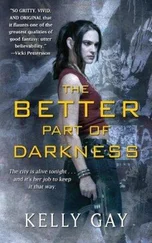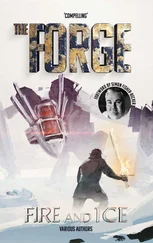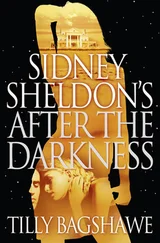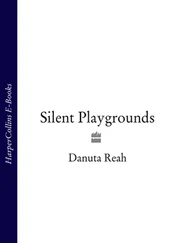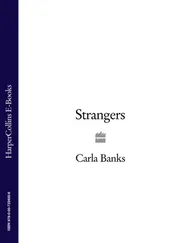Lynne Jordan went through the details of the victims again, looking for that elusive something that linked them together. It was there, and she was missing it. She looked at the photographs the families had supplied. Lisa was dark-haired, attractive. She was smiling at the camera and doing an exaggerated glamour pose. She looked young, happy, confident. Kate was more serious, dark-haired again, strong features, well-defined brows. This picture had been taken when she was campaigning for the student union presidency. Attractive, but in a different way from Lisa’s vivacious femininity. Mandy had fair hair, a light brown often called mousy. She smiled rather tensely and artificially at the camera. A plain woman, if the picture was right. She doesn’t take a good photo, our Amanda, her mother had said sadly. We had a lovely one for the engagement announcement. We put it in the paper. Julie was blonde, fine-boned, lovely. She smiled confidently at the camera, a young woman at ease with her looks.
Their dead faces stared back from the board in the room where Berryman’s team was based; and from another wall, in another place.
He keeps the photographs on a board just by the entrance to his loft. He likes doorways, entrances, spaces that are neither one place nor the other. In the doorway, on the threshold, there is a place that is nowhere. It is a place where it is easier for him to be his real self. It is a dangerous place – some people protect themselves from it by hanging charms above the door, or protect their loved ones by carrying them across it. It isn’t dangerous for him, he lives in this space. He doesn’t need any charms. He can’t keep his souvenirs on the threshold, but he likes to see his pictures as he climbs from one world into another.
The trains are rattling around the tracks, running to time, running like clockwork. At eight-thirty-two, a train pulls into Goldthorpe station, another pulls out of Sheffield on its way to Barnsley, another on its way to Hull, calling at Meadowhall, Moreham Central, Mexborough, Conisbrough, all the way to the end of the line. Signals change, points move, freight trains rush through stations without stopping, slow and stop at signals. At night, the landscape is illuminated with points of light – lights at the stations, lights where the roads run near to the track – but there are dark places too where the track runs through unlit expanses, the trains briefly lighting up the night and vanishing, leaving silence behind them.
The Christmas shoppers are out in force now. They crowd the stations. An InterCity express thunders through the small station at Meadowhall, as the tannoy warns travellers to stand back from the edge as a fast train is approaching. These places are dangerous. A station is a first step across the threshold. A train is a doorway. The train is the doorway, with its exit miles, maybe hundreds of miles, away. The threshold ends at the destination. But things can happen in places that are no places, places that are doorways hundreds of miles long. Such places are dangerous.
He can’t settle. He needs to do something. He looks at the paper again. He frowns. When he first saw it, he’d been quite upset. They were saying, they were implying, that he’d made a mistake, and he hadn’t made a mistake at all. It was all a matter of timing. He knew the other Thursday woman would be there. He’d arranged it so that he was gone by the time she arrived. Of course he’d had to go back. He needed to check that he hadn’t left anything behind. He liked to prolong, to savour the moment, to delay just a little. He’d had the forethought to make sure that the light was dim on the other platform. He would have done something about her if he’d needed to. In fact, he can see that it might all be working out for the best. He gets his scissors out and carefully cuts around the photograph. This is the first time he’s had a such good photograph of before. The others are most unsatisfactory. The photographs of after are better. If you want a job doing well …
He knows why he can’t settle. He’s been given the sign. He needs to hunt again, and time is getting short. This one is a good one. She goes to places where he can hunt, he knows that already. After all, he’s been watching. Carefully, he tapes the photograph to his notice board in the loft, and looks at it for a moment. Then he takes a Stanley knife and, using a fresh blade, cuts first one eye, then the other from the picture. Then he pushes a pin through the place where the mouth is. This one speaks and he doesn’t much care for what it says.
Tuesday morning, Debbie, who had woken up at about half past five and had been unable to get back to sleep, caught the seven-twenty train and was actually in college by quarter to eight. She had planned to spend an hour catching up on her marking, but as she sat at her desk sipping a cup of bitter coffee, she realized that she wasn’t going to be able to concentrate. Right. Something else then. She had her GCSE English class at nine that morning. They’d been looking at ghost stories – it was a topic Debbie always did at Christmas, and she was trying to get them to write stories of their own. They had trouble with writing horror, because the model from their own experience of books and film was fantasy based and excessively violent. The idea that their own world of the everyday could be far more horrific was alien to them. Debbie decided that today she would show them ghosts.
The Broome building offered an excellent venue for a ghost story. Debbie went roaming, trying to remember the best stories, find the best places. The high-ceilinged corridors were shadowy, brown, grey and black, the brighter colours on the paintwork long since worn off. Ghosts could easily walk here. Debbie went on up the stairs to the top corridor – there was a story here – and began a narrative in her head in which someone was standing where she was standing, her back against the window, watching through the crazed glass in the swing doors, the shadow of something stalking her, knowing she was trapped in a dead end with no way out but the eighty-foot drop through the window behind her.
Footsteps beyond the doors brought her back to earth – the sound was heavy and solid. A man, then. She peered back down the corridor into the shadows, and saw a shape loom against the glass. The door opened, and Les came through, carrying a bunch of keys. He looked at Debbie.
‘Morning,’ he said. Should she explain what she was doing? He didn’t seem curious, but he must have wondered. As he came towards her, she said, ‘I was just looking at those places that you tell the stories about, you know, the ghosts.’
‘Not me.’ Les looked dour. ‘It’ll be one of those young ones telling you a lot of nonsense. I’ve worked here near on forty year, and I’ve never seen any ghosts.’
‘But they’re good stories. I was trying to remember that one that was supposed to have happened one Christmas – I’m sure it was you that told me.’
‘Oh, you mean the footsteps on the long staircase.’ Les seemed reluctant to tell the story at first, but Debbie had remembered it as soon as he mentioned the staircase.
The long staircase was originally a fire escape. It ran in a spiral down the inside of a tower-like structure built at the point where the corridors ended. An external fire escape now served the building. The doors that led on to the long staircase were nailed up and had been since before Debbie started work at the college. The only way on to it now was through the IT resource centre. At the back of the room was the old fire exit with a push-bar handle. Students no longer used the long staircase which led out into the lane behind the college, and now it was mostly used for storage. It was dark even on the sunniest day.
Читать дальше




